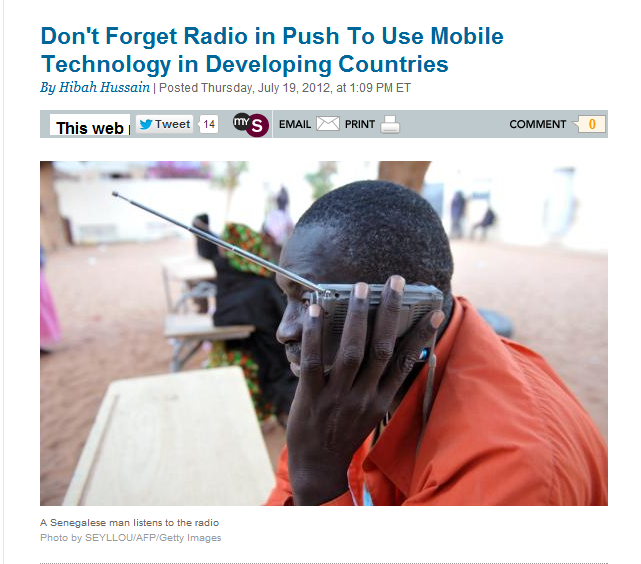On September 7th 2012, our founder Ken Banks contributed a guest article to BBC Future, their website on technology, science, the environment and health, on the impact technology has on poverty eradication.
"Twenty years ago, if you were information technology-literate and interested in international development, your options were limited.
That’s how things were for me when, in 1993, armed with ten years programming and networking experience I began turning my attention to the developing world.
My efforts didn’t get me far. The information technology revolution we see today had barely started at home, let alone in many of the developing nations. If you weren’t an English teacher, a doctor, a policy maker, an economist or a dam builder, careers in development seemed somewhat limited.
How things have changed. Driven largely by the spread of the world wide web and the burgeoning mobile phone sector, opportunities to develop solutions to many of the world’s social and environmental problems have reached almost every bedroom and garden shed in the land.
The irony today is that arguably the greatest developmental tool we have in our hands isn’t a product of the tens of billons of developmental aid spent over the years, but a by-product of private sector investment. Putting the debate around costs and coverage to one side, the development sector has a lot to thank the mobile industry for.
In 1993 the number of mobile subscribers in Africa numbered in the hundreds of thousands. By 1998 that had crept to four million. Today there are an estimated 735 million with penetration running at around the 70% mark. Not bad in less than 20 years."
You can read more on the BBC Future website. UK readers can access the article on Ken's website.



